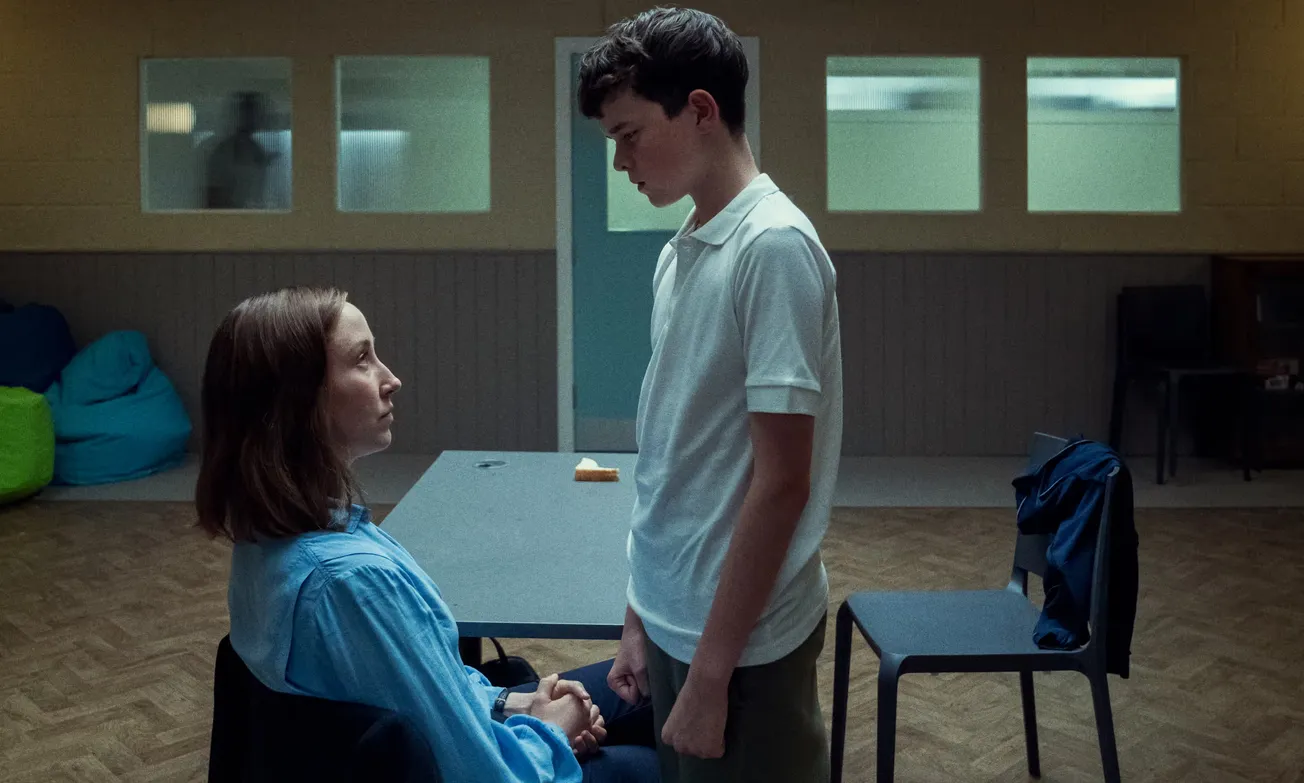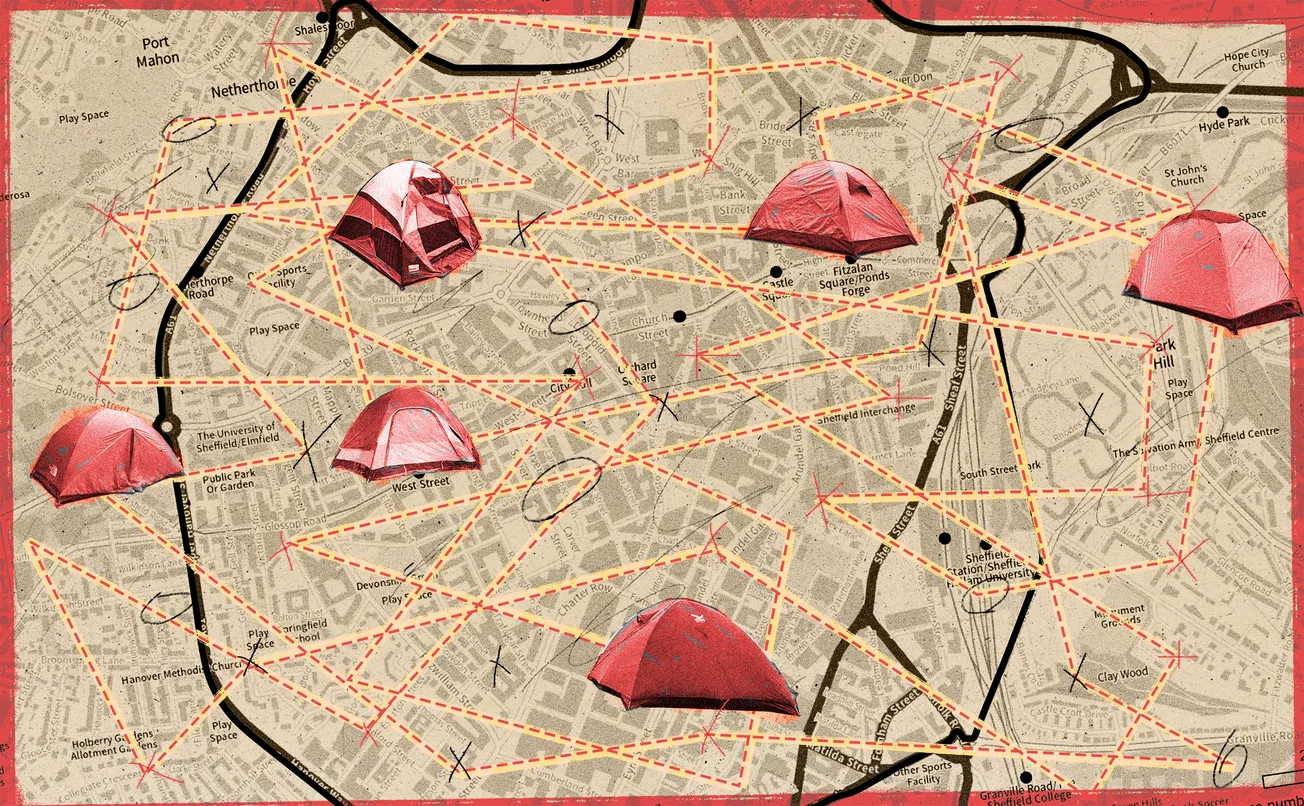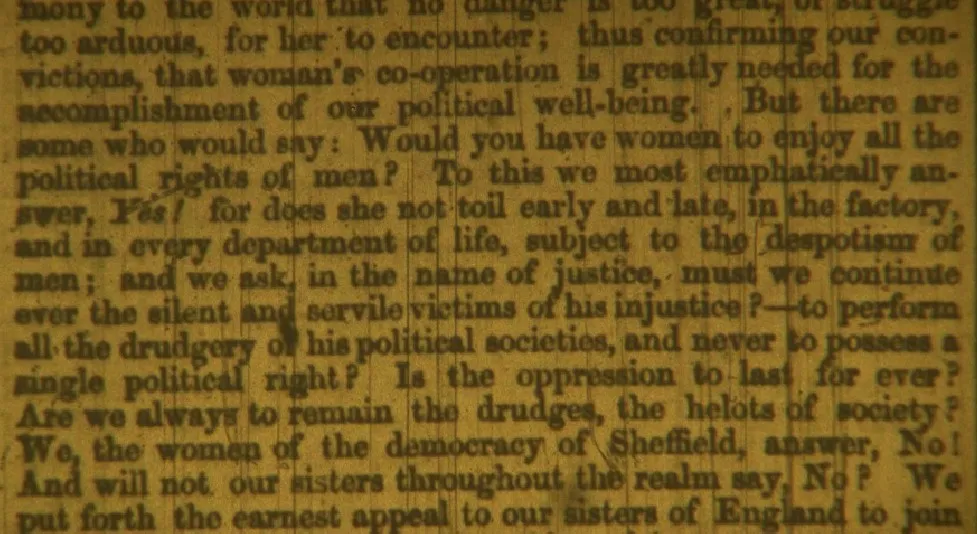The great American film critic Roger Ebert famously said that movies are machines for creating empathy. “If it’s a great movie,” he said in a 2005 speech at the dedication of his plaque in his honour outside the Chicago Theatre. “It lets you understand a little bit more about what it’s like to be a different gender, a different race, a different age, a different economic class, a different nationality, a different profession, different hopes, aspirations, dreams and fears.”
Warp Films — the Sheffield-based production company who have just put out the world’s biggest show of the year so far, Adolescence, seem to live by this mantra. In 2004’s Dead Man’s Shoes, the viewer is taken on a dark journey with an ex-squaddie who has returned home to take his revenge on those who have wronged his family. In 2006’s This Is England, a troubled young boy is accepted into a skinhead gang before being taken under the wing of a violent racist. In Four Lions, a group of Islamist suicide bombers target the London marathon. The hero of Everybody’s Talking About Jamie is a 16-year-old drag queen.
Adolescence continues the trend. Set in Doncaster, it tells the story of Jamie Miller, a 13-year-old boy who is accused of a heinous crime. It’s certainly not an easy watch. As the viewer, we are not only encouraged to empathise with the killer’s family but also to empathise with the killer himself. But the reaction has been astonishing. Warp’s earlier films and television series have won bucketloads of critical acclaim and multiple awards, but have remained to a certain extent cult hits. Adolescence on the other hand, which was released on streaming platform Netflix last month, is currently the biggest television drama in the world. In the last three weeks it has been seen by over 100 million people worldwide and is currently top of the Netflix chart in 80 countries. Warp Films have hit the big time.

Their current success is all the more surprising when you consider that two years ago, Warp Films were just a couple of months away from going out of business. “We were probably two months away from literally turning the lights off,” says joint CEO Mark Herbert as we sit down at the firm’s Park Hill offices. I haven’t met many film and television producers in my life but Herbert strikes me as fairly atypical. Born and bred in South Yorkshire, he’s plain-spoken and down to earth, not unlike the characters in the films and television series Warp produces (minus any obvious darkness or revenge motivation). As we talk, he checks his watch regularly to make sure he’s not going to be late for picking up his kids from school.
Returning to Warp’s recent financial woes, Herbert explains that back in 2023, the firm hadn’t had a really successful film in a while, and Covid had hit the release of Everyone's Talking About Jamie, which they had been hoping would be a big hit. “That's how precarious this industry is,” he continues. “It’s like buses, you get nothing for three years and then two come along at once.”
It’s the second time we’ve met in two days. At the first it’s just a fleeting hello as he works the room at a screening of Warp’s latest TV drama series Reunion at the Showroom Cinema, the second of the two buses that have arrived for Warp in the last few weeks. The Sheffield-set show, which begins on BBC One on Monday, tells the story of a man who returns home after being in prison for 10 years after being convicted of murder. However, what could feel like a fairly common trope is turned upside down by the fact the former convict is deaf and most of the dialogue is in sign language. Introducing the screening along with Sheffield-born writer William Mager, who is himself deaf, Herbert says Reunion is “bold and innovative, and everything that Warp stands for.”
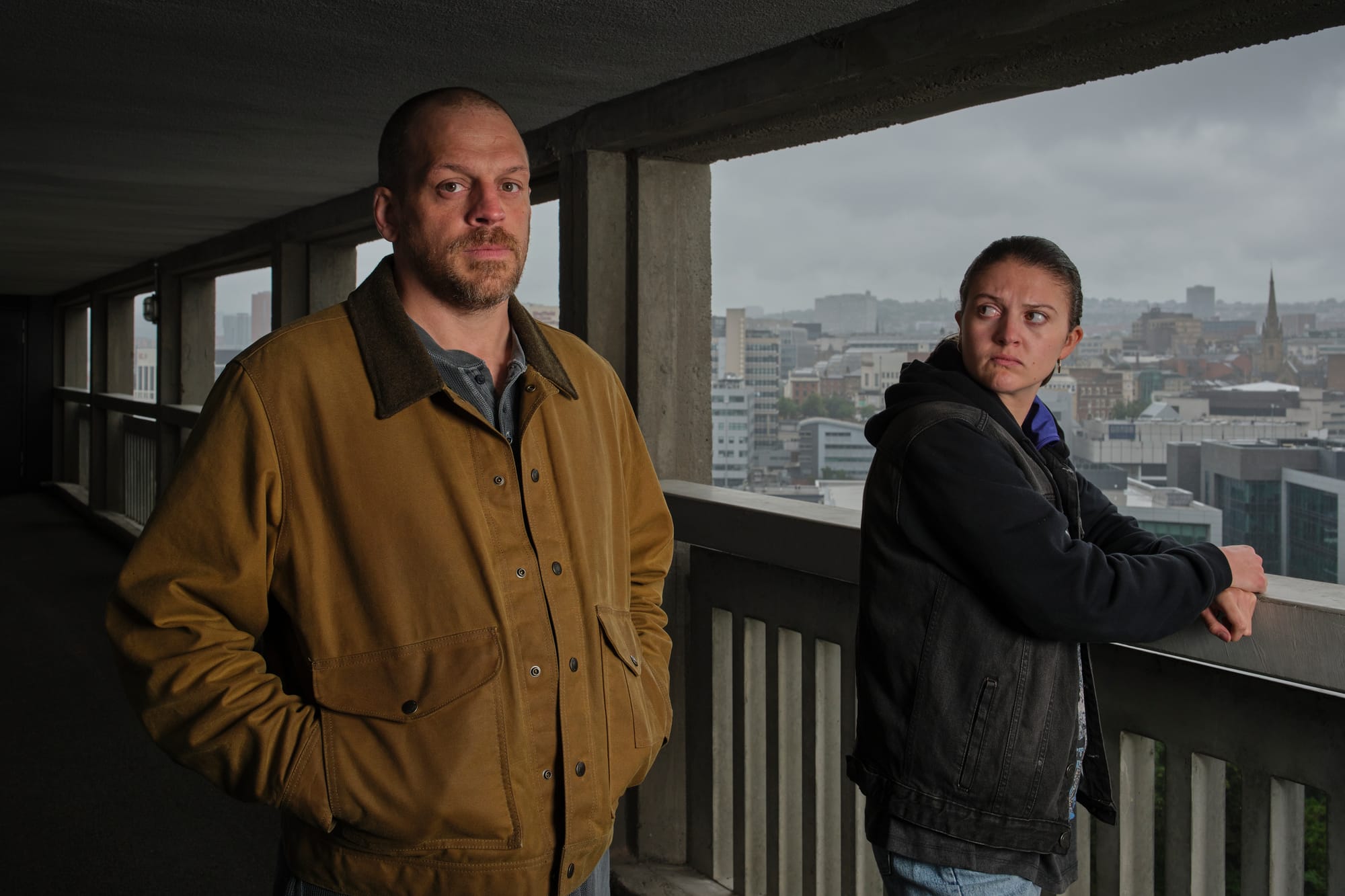
The success of Adolescence and Reunion feel like the culmination of a story worthy of a television drama in itself. The production house started life as an offshoot of legendary Sheffield record label Warp Records, who had been blazing a trail in innovative and experimental electronic music in the city since 1989. In the late 90s the label had begun making music videos which went way beyond the conventional lip syncing and back-up dancers, as anyone who has ever seen the terrifying video that accompanies Aphex Twin’s Come To Daddy will testify. Warp co-founder Rob Mitchell's vision was to take the same approach into the film business, but he tragically died of cancer before it could be realised. At the time of his death, Mark Herbert knew the Warp team socially and had just finished his first big producing gig: the first series of hit Peter Kay sitcom Phoenix Nights. “I said I'd try to take Rob’s vision and run with it,” he says.
Their first film, a short made by Chris Morris and starring Paddy Considine called My Wrongs, won the BAFTA for best short film in 2003. Shortly after that win, Considine introduced Herbert to Shane Meadows, who directed the firm’s first feature film Dead Man’s Shoes, a revenge drama set in the picturesque Peak District town of Matlock. Two years later Meadows directed This Is England, which would become Warp’s first breakout hit, and also marked the firm’s first collaboration with Liverpudlian actor Stephen Graham.
Dark, gritty stories set in the north of England and produced with a tight knit group of collaborators have become Warp Films’ trademark. Sticking to their guns hasn’t always been easy; the pressure to cast more A-list stars or move the firm’s headquarters to London have been ever present. But had they done so, it’s unlikely they would ever have made Adolescence. “There is a Warp DNA through the whole story from Dead Man’s Shoes right through to Adolescence and Reunion,” he says.
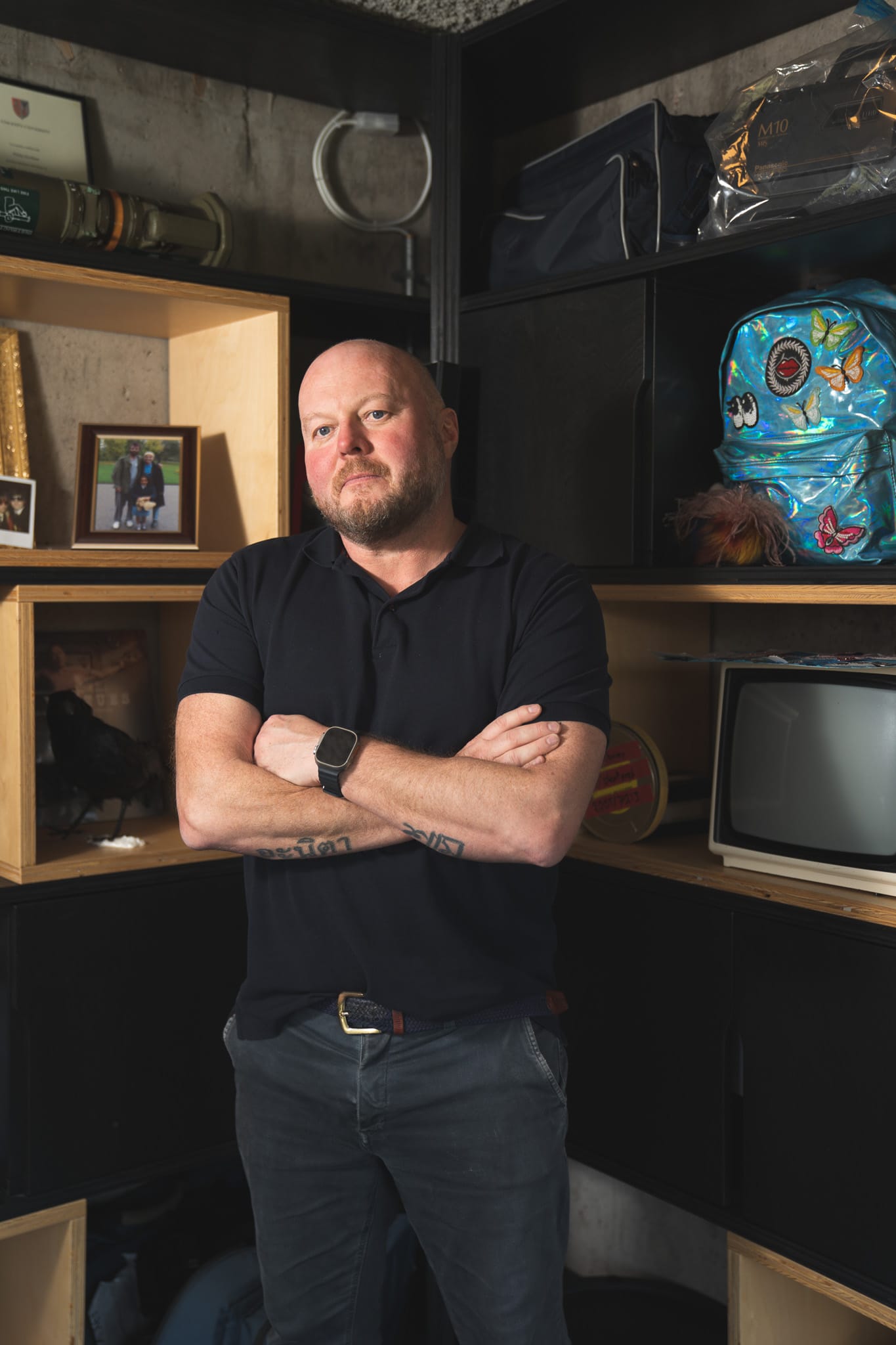
Around the same time that things were looking bleak for Warp, the germ of the idea that would become Adolescence was forming in the minds of actor Stephen Graham and screenwriter Jack Thorne. The two had just worked together on the restaurant kitchen set thriller Boiling Point and its television series sequel. After that show finished, Graham began speaking to Thorne about doing something focused on the huge pressures today’s teenagers are under and the tyranny of social media in their lives. “Jack and Stephen wrote this script that absolutely knocked my socks off,” says Herbert. He tells me that normally, when he reads a script his mind immediately starts thinking the typical TV production questions: how do I get this made, what’s the right outlet for this? However, his reaction to the first draft of Adolescence was much more personal. “I’m a dad and I have three kids,” he says. “I read Adolescence and I was like ‘fuck me, what the hell’.”
Netflix came on board in December 2023. Mark Herbert knew the streaming firm’s vice-president of content Anne Mensah from when she was director of drama at Sky. Her interest piqued by a script by Stephen Graham and Jack Thorne, she read the first draft and was immediately hooked — becoming convinced it was worth trying something very different to Netflix’s usual offering (a decision which has been thoroughly vindicated). A window of time where Graham and director Phil Barantini could be free was found and filming commenced last summer. Like most Warp productions, the series is set in the north, but the setting chosen was particularly personal for Herbert. Born in Doncaster and growing up in Conisborough, he witnessed first hand the decline of the once mighty mining industry in the area. In some ways, the filming was like him coming home.
When I watched Adolescence earlier this week, my reaction was identical to Herbert’s. The first and third episodes in particular are two of the most visceral and compelling hours of television I have ever watched. As a journalist, I have often been asked to cover harrowing cases, but in our profession we only ever see the public side of it: the police statements, the court appearances. The first episode of Adolescence lifts back that curtain to show in unflinching detail exactly what happens when someone is arrested for a shocking crime. The intense close up of Stephen Graham’s face when he’s watching the custody officers strip search his son Jamie is something that I think will stay with me forever.
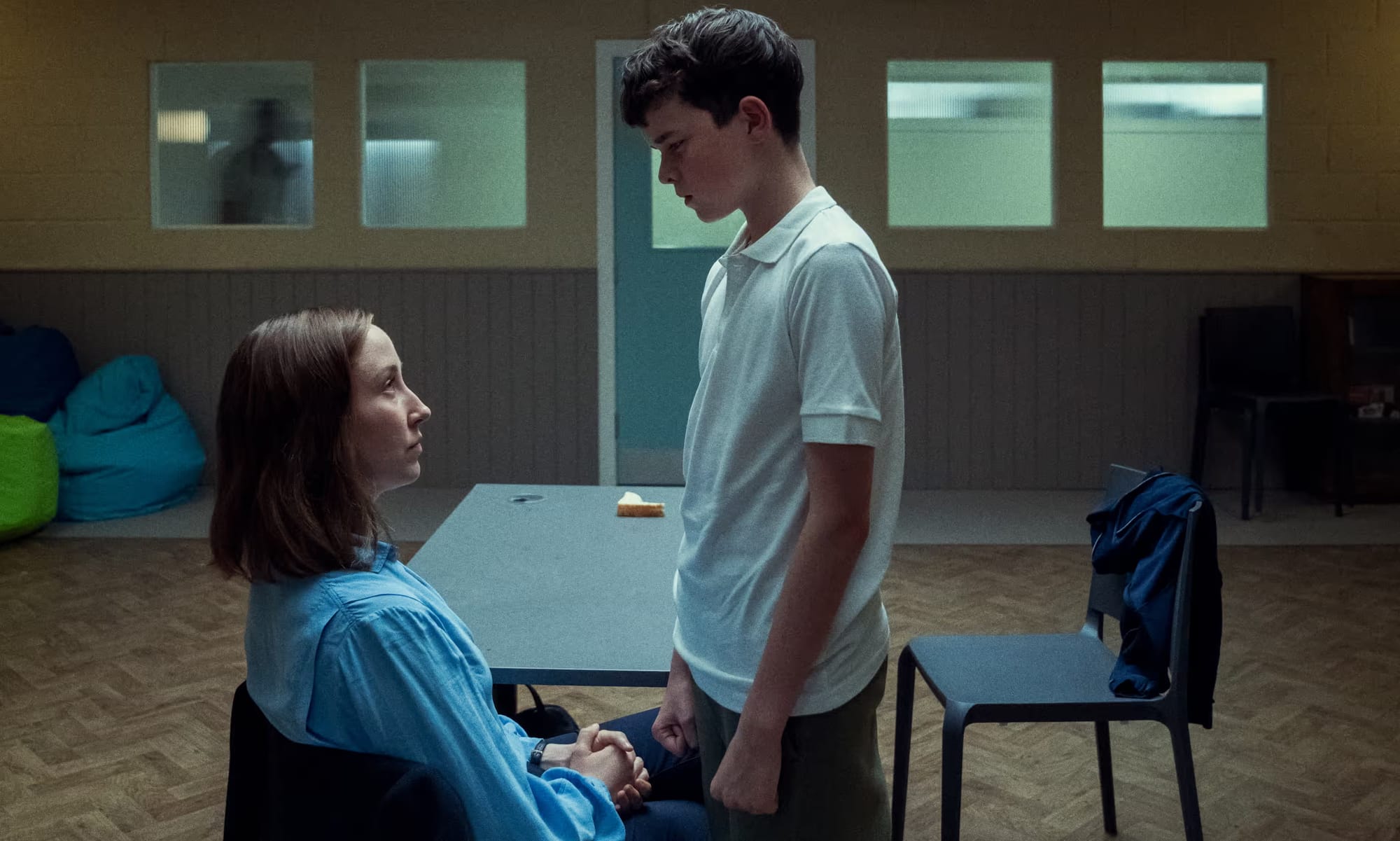
That tension is heightened by the way each episode of Adolescence was made. Normally, films and television shows are put together by cutting together hundreds of individual shots, many of which will have been filmed dozens of times, but each episode of Adolescence was filmed in just one shot. No cuts, no time to reset. Just turn the camera on at the beginning and turn it off at the end. While in the wrong hands this can sometimes feel like a gimmick, Herbert says going in real time allowed them to tell a “very honest story” and really delve into four key moments of real time: the arrest, the police’s visit to the school, Jamie’s final interview with a clinical psychologist, and how his family are coming to terms with what has happened 13 months on. “We knew we didn’t want it to be a whodunnit, and we didn't want it to have twists,” he says. “It was just these four moments and by doing it that way we’re not making judgements, we’re allowing the audience to make up their own mind.”
The choice to go down the one-shot route made filming a logistical nightmare. Episode two was filmed almost entirely at Minsthorpe Community College near Wakefield, and they didn’t get the shot that was used until the day they had to leave. At one point, the camera needed to follow a pupil out of an open window and then be chased by one of the detectives, before later being put onto a drone, flown several hundred metres away and delivered to where Jamie’s dad is laying flowers at the murder site. “I was just watching it thinking: that’s brilliant, but please don’t fuck up,” Herbert says. Despite the stress involved, he says people have told him this meant they couldn't look away, or even blink. “It’s unflinching and real and the story just lent itself to that,” he says.
The astonishing success of Adolescence has been way beyond anything Warp or Netflix ever hoped for. For a company that was in such dire straits just two years ago you might think they had been aiming for a hit, but Herbert tells me otherwise. “Had we gone, let’s try to make a show that 100 million people would watch, we wouldn’t have made Adolescence,” he says. Rather, the tests he applied remained the same: did the story have an integrity and honesty to it, and did he believe in the motivation of the characters? “I don’t just want northern stories or working class stories, but we are always interested in characters that are complex and it has always got to have a heart to it,” he tells me. “I want to invest in those characters whether they are good or whether they are bad. I want to know more about them.”
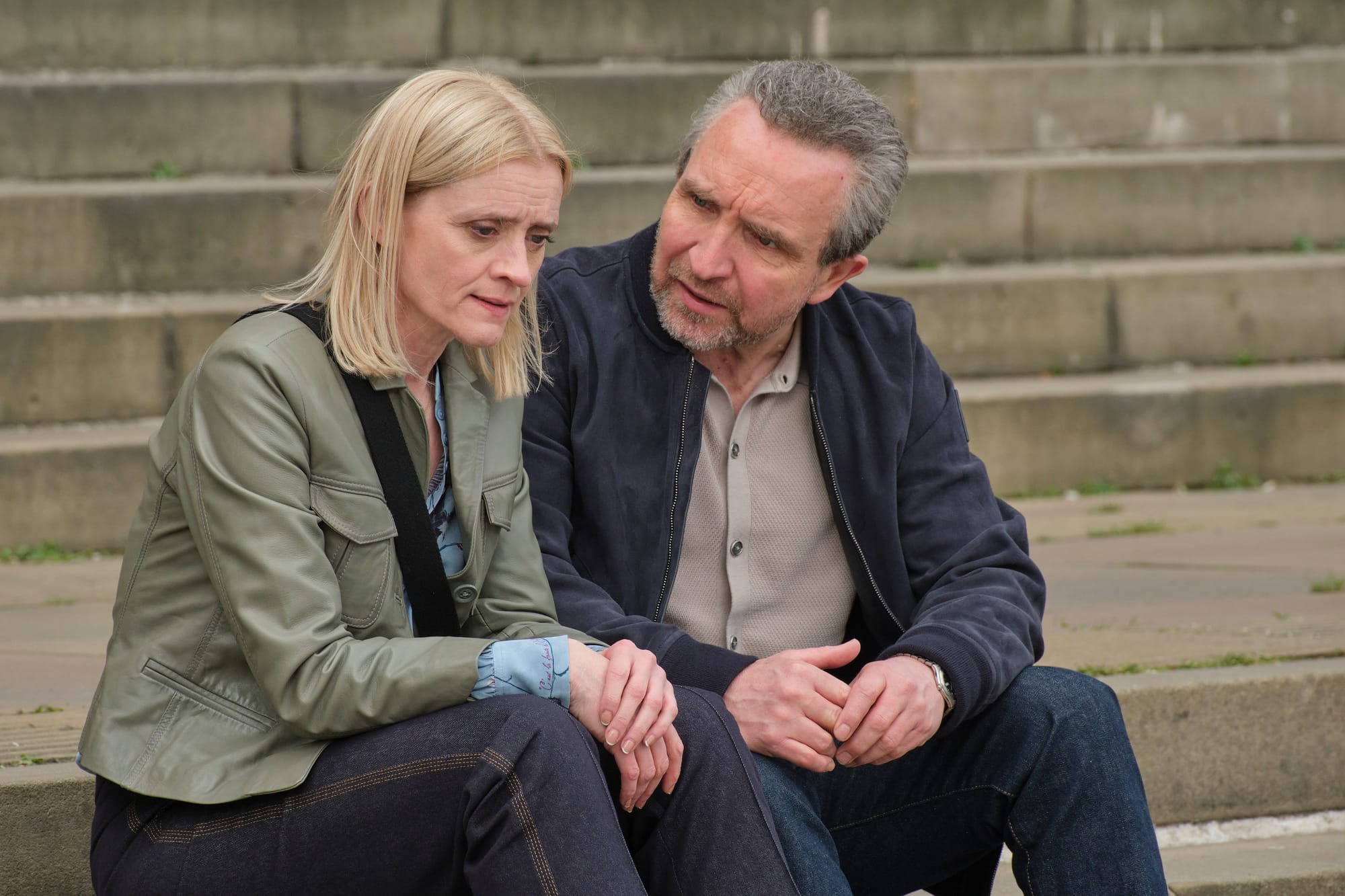
Success, of course, brings its own difficulties. In the wake of Adolescence’s release last month, a baseless conspiracy theory emerged that the show was actually about the murders committed by Axel Rudakubana last July in Southport, but the race of the killer had been changed. This was amplified by Elon Musk, and later given credence by Conservative Party leader Kemi Badenoch. In reality, Herbert says the original idea dated back to 2023 and filming on the production started in July last year, several weeks before those murders took place.
When I ask the Warp Films team what’s next, they’re light-lipped other than to say they have some “very exciting film TV and film projects in development” which they hope to start filming on in the next 12 months. They add that “ideally these would be shot in Sheffield and the surrounding region”. We’ll have to wait and see. But whatever they do next, after Adolescence and Reunion, the days of being worried about keeping the lights on are probably behind them.
Adolescence is available to stream now on Netflix. The first episode of Reunion will be shown on BBC One on Monday at 9pm.

Comments
How to comment:
If you are already a member,
click here to sign in
and leave a comment.
If you aren't a member,
sign up here
to be able to leave a comment.
To add your photo, click here to create a profile on Gravatar.


